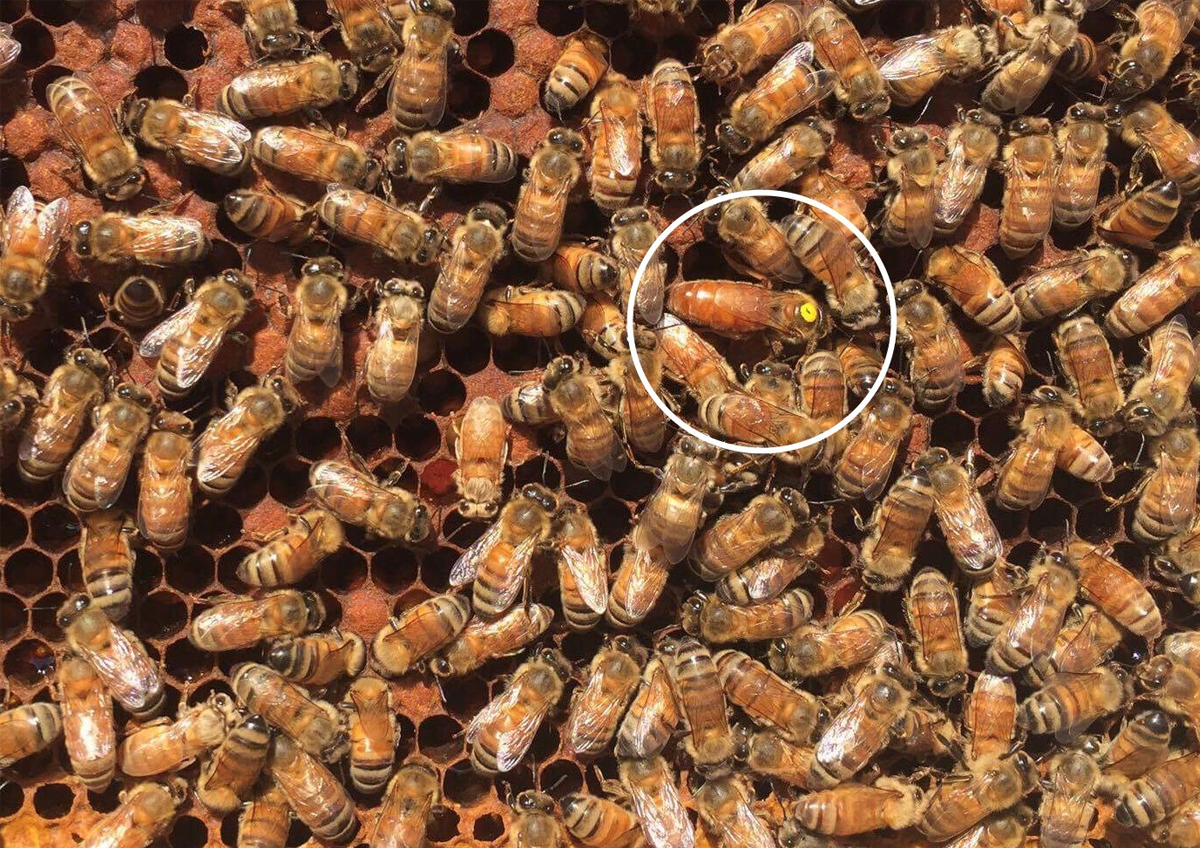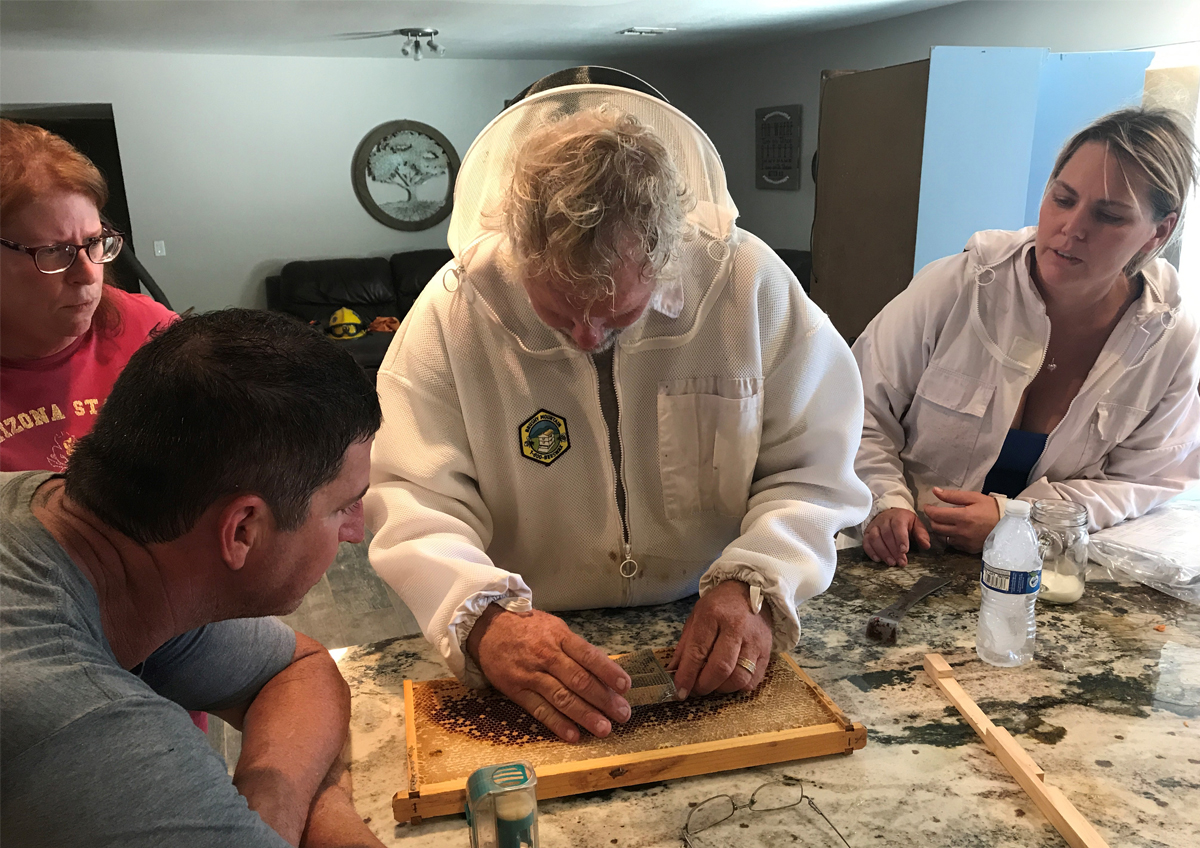
By Cricket Aldridge
Africanized Honeybees (AHB) have not always been in Arizona. It has only been since the 1990s that they entered the scene in the southern United States. Since 1957, when scientists in Brazil brought African bees over to help their honey production, these highly aggressive bees have traveled north at a rate of 200 miles per year, mating with European Honeybees. It is estimated that 100 percent of the feral honeybees in Arizona are now Africanized.
Compared with European bees, Africanized bees are:
- More defensive around their hives.
- Faster at responding to perceived enemies.
- More likely to respond in group attacks.
- Likely to pursue a source of disturbance for up to a kilometer.
No wonder people call exterminators when they see bees on their property — it’s hard to blame them when you see these facts. But there is a better choice that actually benefits bees and our neighbors.

Most people don’t know that backyard beekeepers can rehabilitate an entire colony of Africanized bees. Surprisingly, the cost of removing versus exterminating is about the same, as well. Beekeepers can be called out to remove hives from inside walls, floors, and anything bees have called home. The comb, which contains brood (eggs and larvae), pollen and honey, is removed and placed in frames that fit into a hive. Then the bees are vacuumed carefully and placed in the hive, or the queen is placed in the hive so that her pheromone attracts the rest of the colony.
Beekeepers want these colonies. They are healthy and have already established comb, which has a very high value for a hive since it takes an enormous amount energy and food for bees to produce wax. Once the bees are removed to the beekeeper’s property, the next step is to begin rehabilitation by requeening the hive. This means replacing the old queen with a newly-mated European queen. This single act changes everything in a honeybee colony because the queen is the only source of new bees. European bees look identical to Africanized bees but are much more docile.
Queens mated by feral bees in Arizona will likely produce an Africanized colony. That is why Arizona backyard beekeepers order their queens from places that do not have Africanized bees. A queen bee mates only one time in her life. She takes a mating flight once she hatches and will mate with several drones on that flight. Once back in her hive, she will remain there for the rest of her life, laying approximately 1,500 eggs every single day. The average lifespan of a worker bee is about six weeks. Add to that the 21 days it takes for the already laid eggs to emerge as adults, and that is how long it will take for a hive to be completely reformed into a docile European Honeybee colony once the new queen arrives and begins laying eggs.
What this means to the beekeeper is that he can manage his hive more easily. What it means to the neighbors, is that the bees flying around their gardens and drinking from their pools are not likely to attack. It also means that the gene pool of drones entering the mating sphere is going to be less Africanized.
The cost of requeening a hive is about $35.00 and must be done at least every year to maintain a docile hive. Every hive that a beekeeper is called to rescue must also be requeened, which can become quite a limiting factor for beekeepers.
The Arizona Honeybee Festival is donating a portion of their proceeds to help backyard beekeepers with this cost. We feel it is a worthwhile effort that impacts everyone in our community. Beekeepers can positively change the course of Africanized Honeybee colonies in Arizona through rehabilitation and responsible hive maintenance.
Cricket Aldridge is a Master Gardener and Backyard Beekeeper in Phoenix, AZ. She writes a blog called GardenVariety.Life where she shares homesteading skills from a suburban desert perspective. She is also the organizer of the first annual Arizona Honeybee Festival, taking place November 18 in downtown Phoenix.







How can I donate to help this?